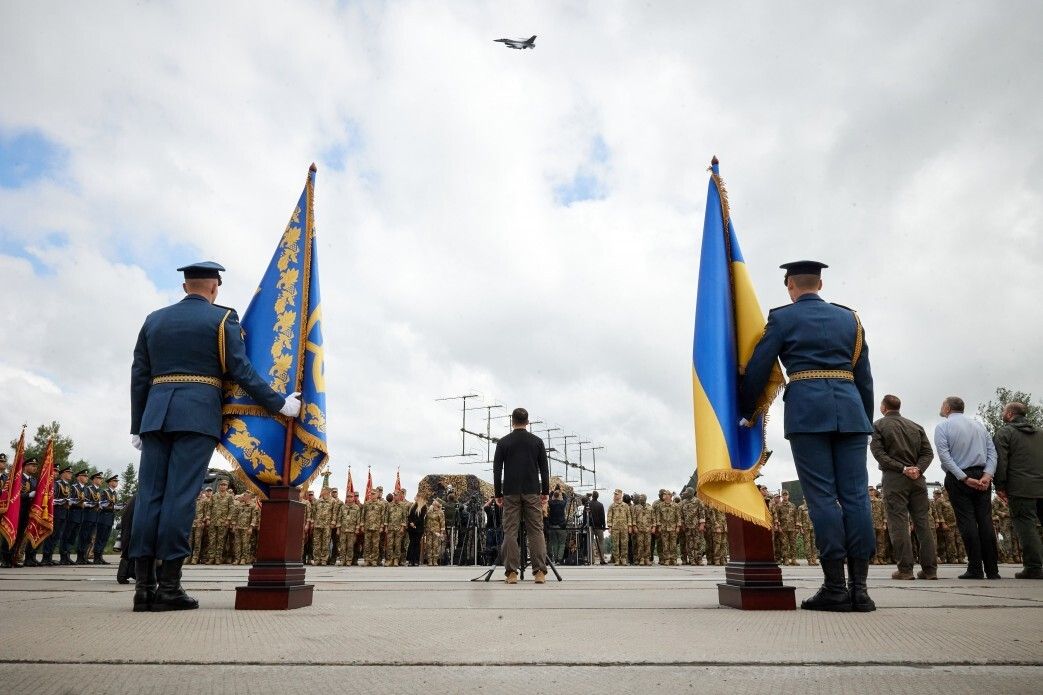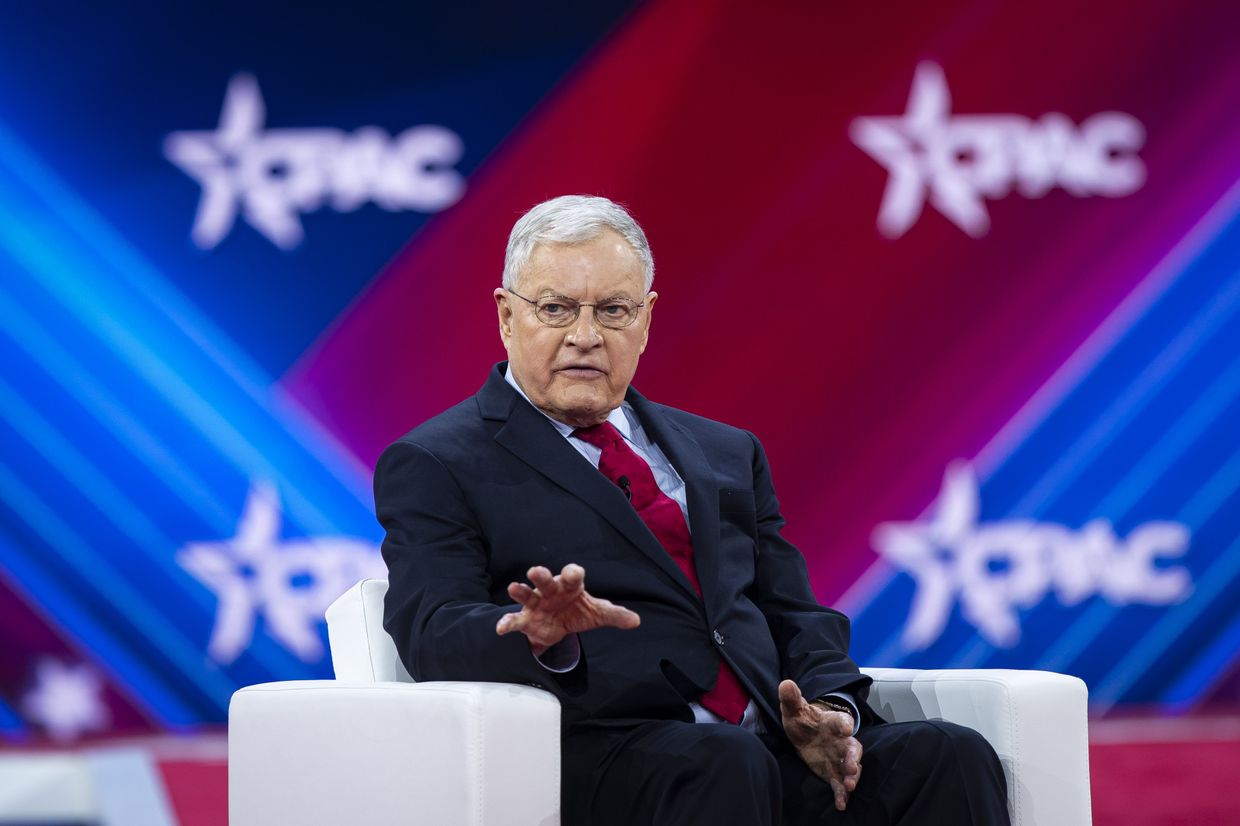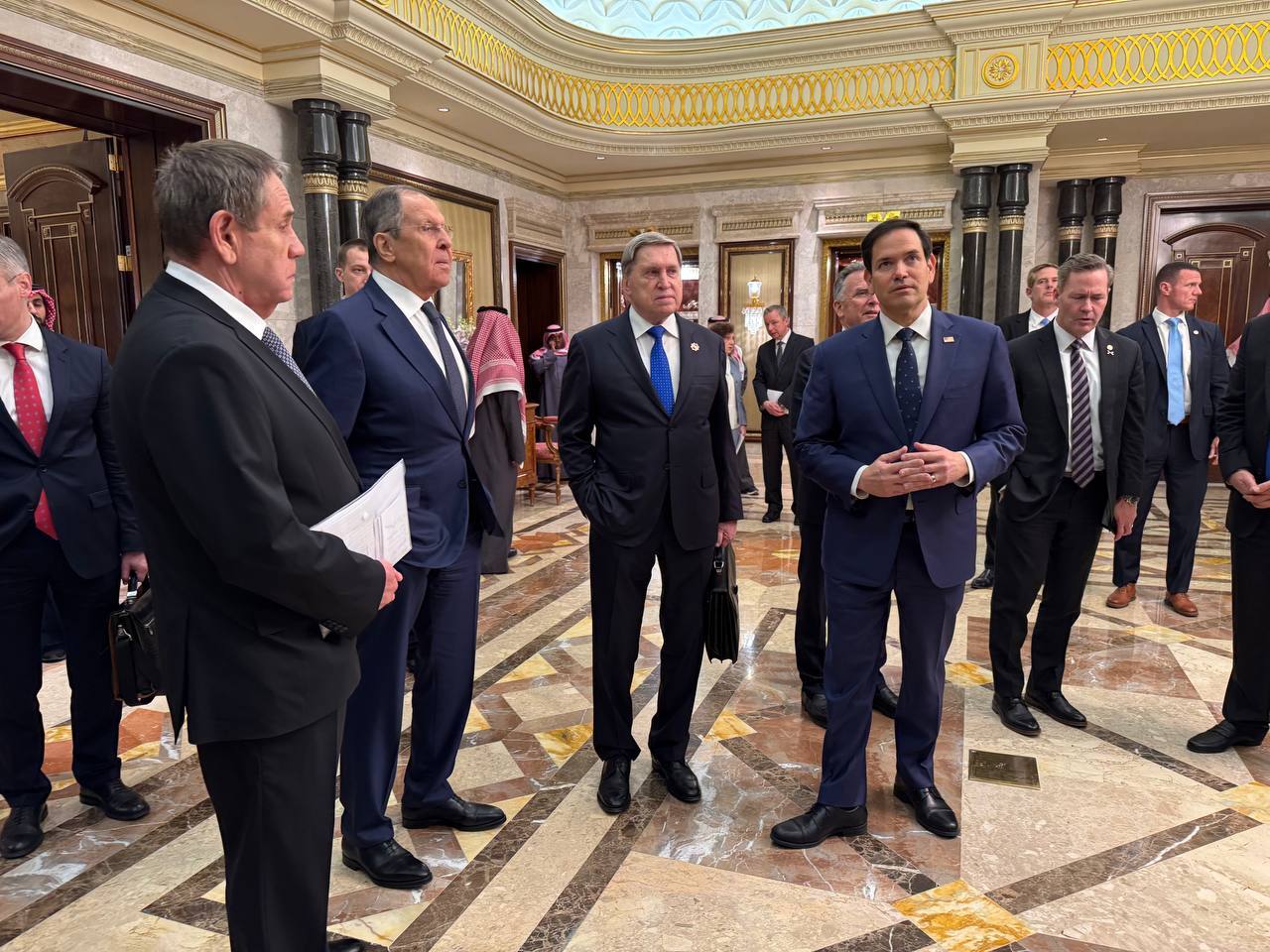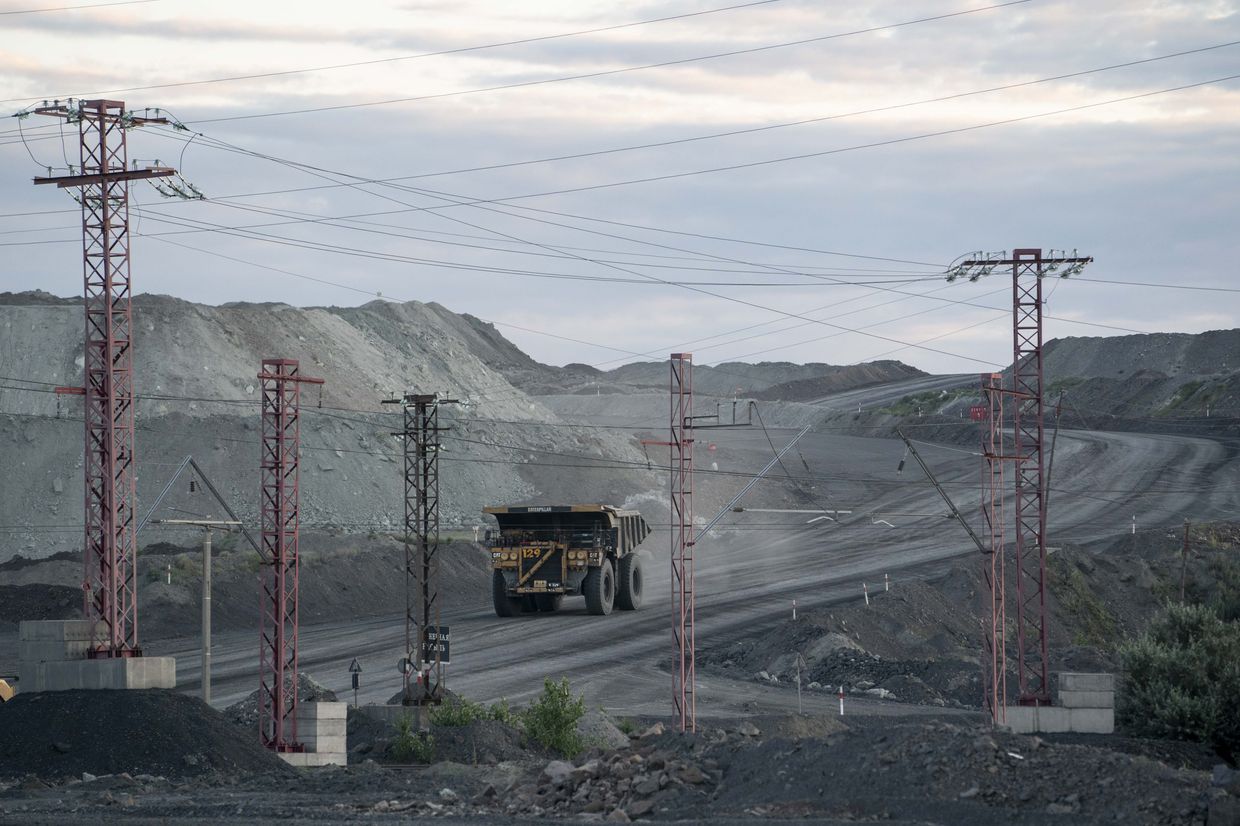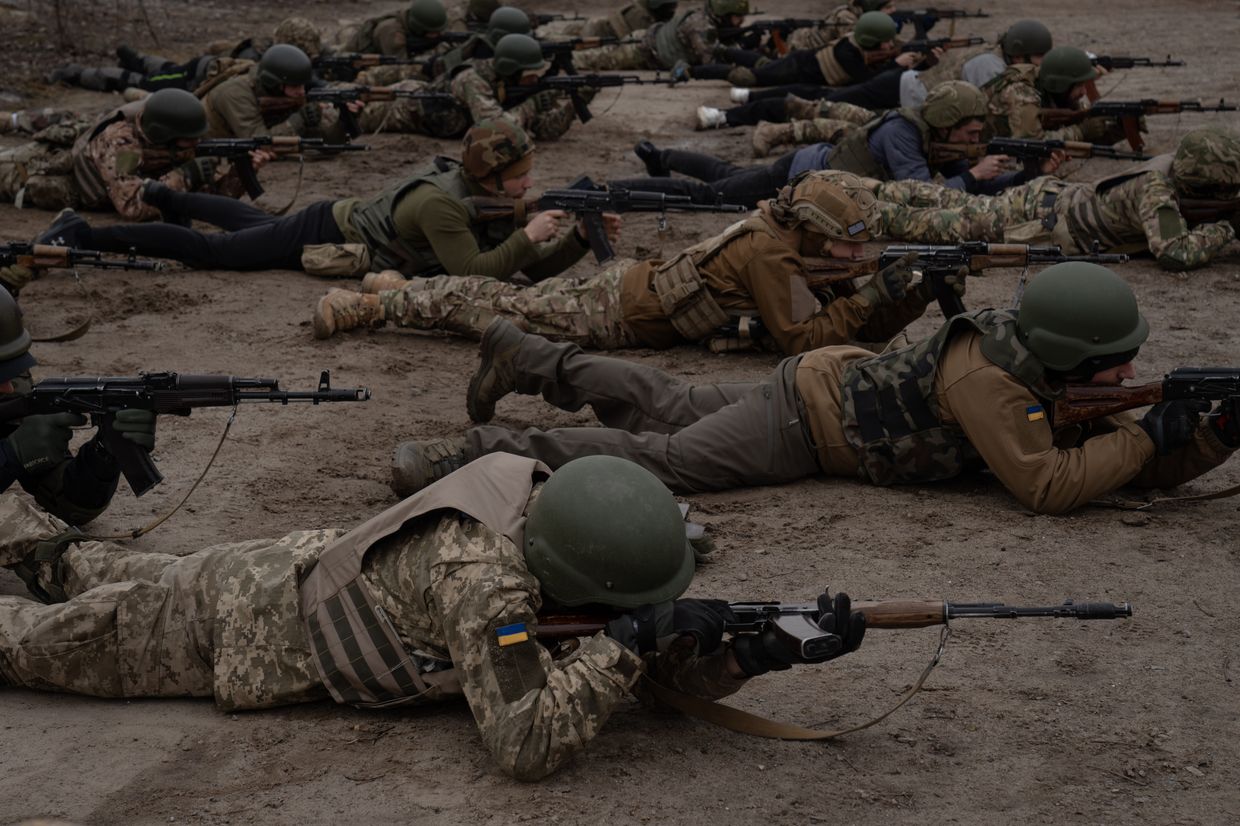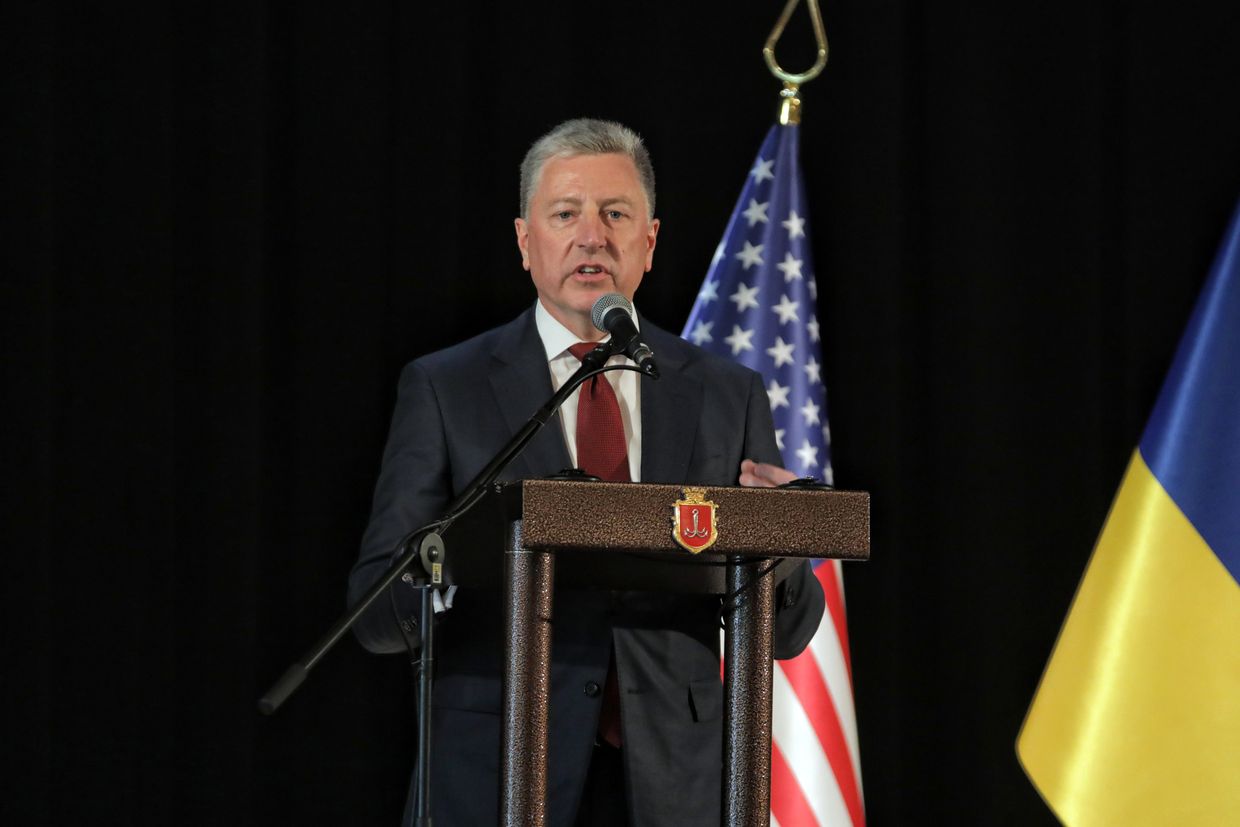‘Russians didn’t like him’ — Why Trump's envoy Kellogg was sidelined from Russia talks

US Secretary of State Marco Rubio (C), US National Security Advisor Mike Waltz (R) and US Middle East envoy Steve Witkoff attend an interview after meeting with Russian Foreign Minister Sergei Lavrov and Russian President Vladimir Putin's foreign policy advisor Yuri Ushakov, at Diriyah Palace, in Riyadh, Saudi Arabia, on Feb. 18, 2025. (Evelyn Hockstein / AFP via Getty Images)
As U.S.-Russian talks on ending the war in Ukraine kicked off in Saudi Arabia on Feb. 18, Keith Kellogg, U.S. President Donald Trump's special envoy for Russia and Ukraine, appears to have been partially sidelined from the negotiations.
Kellogg will focus on talks with Ukraine and Europe, while Steve Witkoff is emerging as a key negotiator with Russia despite his role as Trump's Middle East envoy.
Some experts attribute this to Kellogg's more pro-Ukrainian stance and Russia's alleged objections to him. He has advocated peace through strength and security guarantees for Ukraine.
In contrast with Kellogg, Witkoff's views on Ukraine and Russia are unclear. There are fears that he might be more willing to agree to Russia's conditions.
Witkoff brokered the Jan. 15 ceasefire deal between Israel and Hamas, and Trump may hope that he could achieve something similar in Ukraine, experts say.
"What he brings to the table in terms of Moscow's war in Ukraine, other than his friendship with Trump, is not clear," John Herbst, an expert at the Atlantic Council and a former U.S. ambassador to Ukraine, told the Kyiv Independent.
Witkoff steps in as key negotiator with Russia
On Feb. 11, Witkoff negotiated the release of Marc Fogel, a teacher who had been arrested in Russia on charges of bringing medical marijuana into the country in 2021. Fogel was flown out of the country on Witkoff’s plane.
When asked who he worked with in Russia to secure Fogel's release, Witkoff said that he had cooperated with someone named Kirill. Reuters reported on Feb. 12, citing a source close to negotiations, that Kirill Dmitriyev, head of the state-run Russian Direct Investment Fund, had taken part in talks on Fogel.
Following Fogel’s release, Trump announced on Feb. 12 that he had held a call with Russian President Vladimir Putin and agreed to "immediately" start negotiations to end Russia's war against Ukraine.
Trump said that he had tasked Witkoff, Secretary of State Marco Rubio, National Security Advisor Michael Waltz, and John Ratcliffe, head of the Central Intelligence Agency, with leading the negotiations.
Kellogg's name was notably missing from the list.
Trump also said on Feb. 12 that his first meeting with Putin would take place in Saudi Arabia.
Witkoff, Waltz and Rubio later traveled to Saudi Arabia and launched negotiations with Russian Foreign Minister Sergei Lavrov on Feb. 18.
There, the U.S. and Russia agreed to start the process on Ukrainian settlement, appoint ambassadors to each other, lift "obstacles to diplomatic missions" and create conditions for starting U.S.-Russian cooperation, according to Lavrov.
Kellogg too ‘tough’ for Russians' taste
Kellogg is scheduled to visit Ukraine on Feb. 19 but is not taking part in talks with Russia on ending the war.
He has co-authored a peace plan that would freeze the front line in Ukraine, take NATO accession off the table for an extended period, and partially lift sanctions imposed on Russia.
At the same time, Kellogg has publicly stated that Ukraine should negotiate from a position of strength.
According to his proposals, the U.S. will continue sending military aid to Ukraine and provide security guarantees to Kyiv to prevent further Russian aggression. The plan does not stipulate a reduction in the Ukrainian army's size or recognizing occupied territories as Russian de jure.
Herbst argued that "the Russians did not like Kellogg, because he is the one who is talking about tough measures to get Moscow to negotiate, and negotiate in good faith."

"Kellogg was the most outspoken, the toughest," he told the Kyiv Independent. "And of course, I always felt that Putin would want to make sure that the key channel between Russia and the United States was Putin to Trump, not anything less. And certainly (Russia did not want) the guy who has been talking tough — Kellogg."
Jenny Mathers, a lecturer in international politics at the U.K.'s Aberystwyth University, agreed, saying that "Kellogg certainly seems to be the member of this administration who is the most sympathetic to Ukraine, although he is by no means a fervent supporter of all the terms that the Ukrainian government has identified as necessary for a genuine and sustainable peace."
Mykhailo Minakov, head of the Ukrainian Research Program at the Kennan Institute, said that Kellogg is "one of the oldest and most experienced people in the team."
"He offers a strong balance with respect for Ukraine’s national interests," Minakov told the Kyiv Independent. "He also listens to the European Commission. He represents knowledge, understanding, and a certain wisdom related to the interests of Kyiv and the EU."
Is Kellogg fully sidelined from Russia talks?
Some experts argue that Kellogg has been effectively sidelined.
Daniel Hamilton, a foreign policy expert at the Brookings Institution, said that "Trump has said Kellogg will play a role, but he no longer seems to be in the lead regarding the negotiations."
Mathers said that "it does look as though Kellogg is being given the work of visiting the European capitals, including Kyiv, whereas Witkoff has already been to Moscow, which is clearly regarded by Trump as the center of power."
"Kellogg has also not been included in the negotiating team that Trump has just named, which may be an oversight rather than a deliberate snub (this administration is not great on getting details right)," Mathers said. "But even if it is an oversight and he will be added later, it does reveal that Kellogg is not one of the people that Trump thinks of immediately in this context, despite appointing him as a special envoy to deal with Ukraine and Russia."
Kellogg clarified on Feb. 15 that he would be focusing on negotiations with Ukraine and Europe, and Witkoff would be focusing on talks with Russia.
‘Long-time personal friend’: Who is Witkoff, Trump’s new negotiator?
Witkoff, a real estate investor and billionaire, is a long-time friend of Trump.
After graduating from law school in 1983, Witkoff worked for the New York-based real estate law firm Dreyer & Traub, and Trump was one of his clients.
During Trump's first presidency, Witkoff was a member of the Great American Economic Revival Industry Group, which was created by Trump in 2020 to combat the economic impact of the COVID-19 pandemic.
"Witkoff is a long-time personal friend of Trump's and, like Trump, made his fortune in the New York real estate sector," Mathers said. "Trump is more comfortable around people he knows well and trusts, with personal loyalty being the key criteria for advancement in this administration."

Aron Lund, a Middle East analyst at Century International, also said that "Trump just trusts this guy on a personal level."
"We know he does not trust the U.S. governmental institutions very much, but this guy is an old friend of his, from a similar background," he told the Kyiv Independent. "We seem to be in for a period in which U.S. diplomacy gets more personality-centered and where proximity to the president may matter more than institutional positions."
Lund added that Witkoff is going to run negotiations in both the Middle East and Ukraine and is "about to become some sort of general presidential point man for tricky foreign business."
Meanwhile, Herbst emphasized that Witkoff "is not a professional diplomat and not a person who has done foreign affairs in his career" but "a successful businessman who is a friend of Trump."
Witkoff’s Middle East envoy role
After being elected for a second term on Nov. 5, 2024, Trump nominated Witkoff as his special envoy for the Middle East.
Even before Trump took office on Jan. 20, Wifkoff took part in brokering the Jan. 15 ceasefire deal between Israel and Hamas. The deal envisages exchanging all Israeli hostages held by Hamas for Palestinians held by Israel and Israel's gradual withdrawal from Gaza.
Witkoff pressured Israeli Prime Minister Benjamin Netanyahu to accept the agreement, saying that Trump wanted this deal done, according to sources cited by the New York Times.
Witkoff's Middle Eastern contacts appear to have played a role in his negotiations with Russia as well. Saudi Crown Prince Mohammed bin Salman took part as an intermediary in talks with Russia on Fogel's release, Reuters reported on Feb. 12, citing a source close to the negotiations.
"Witkoff proved himself to Trump by working with the (former ex-President Joe) Biden administration to arrange the ceasefire between Israel and Hamas, and then to negotiate the release of U.S. teacher Mark Fogel from Russia," Hamilton said. "Witkoff has proven himself as a fixer and negotiator. He is assuming a larger role than his title suggests."
Julien Barnes-Dacey, director of the Middle East and North Africa program at the European Council on Foreign Relations, argued that "Witkoff doesn’t really come to the job with deep experience in the Middle East or Russia and Ukraine but plays to Trump’s desire to have someone who can get things done in transactional businessman style."
"both Gaza and Russia/Ukraine involve hostages and the potential for trading hostages, so that may be the common factor and what unites them in Trump's mind."
"On Gaza Witkoff was reportedly much more willing to enforce Trump's desires on Israel and it could be that we see something similar on Ukraine where he doesn’t play nice but delivers Trump‘s message in no uncertain terms," he added.
Mathers said that "both Gaza and Russia/Ukraine involve hostages and the potential for trading hostages, so that may be the common factor and what unites them in Trump's mind."

The fact that peace negotiations with Russia are being held in Saudi Arabia may be linked to Witkoff's role as Middle East envoy.
"My guess is that Witkoff's Ukraine role is an outgrowth from his Middle East negotiations," Lund said. "It seems that Witkoff was involved in stitching together the Putin-Trump summit, which Trump says he thinks will happen in Saudi Arabia. We know that Witkoff has been meeting the Saudis to discuss Gaza, Israel, and other things, so I assume that's where the summit location comes from."
He added that Trump and Witkoff may "hope to leverage the summit as a favor to the Saudis."
"The idea would be that since they get to host this major international event, with all the attention and prestige that entails, they should give something in return on Gaza or related to Israeli-Saudi normalization," Lund said.
Despite Witkoff's role in talks on ending the war in Ukraine, his views on Ukraine and Russia are unknown, analysts say.
Mathers said that she has not "seen anything specific to indicate Witkoff's views on Russia, but Trump clearly regards him as a trusted envoy."
Although Witkoff has been praised for brokering the Gaza deal, the implementation of the agreement has faced some problems, which may foreshadow similar difficulties if he hammers out a deal with Russia.
On Feb. 10, Hamas accused Israel of violating the ceasefire and said it would suspend the release of the remaining 76 hostages.
Trump said that "all hell is going to break out" if hostages were not released, and Netanyahu threatened to resume fighting. As a result, Hamas said on Feb. 13 that the hostages would be released.
Another move that has caused a backlash from Palestinians and Arab countries is Trump's Feb. 4 proposal that the U.S. take over the Gaza Strip and that Palestinians should leave it.
Michael Sahlin, a Middle East expert at the Stockholm International Peace Research Institute, said that it is not clear if the Gaza deal will lead to a sustainable and stable peace. But he believes that Witkoff’s role in the Middle East and his talks with Russia may be connected.
“I have a suspicion that there could be a link between a big Trump package deal about the Middle East and a big package deal about Ukraine,” he told the Kyiv Independent.

